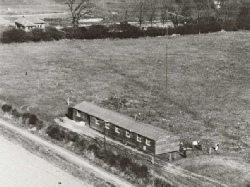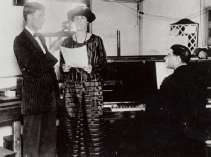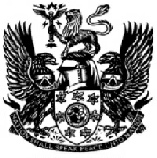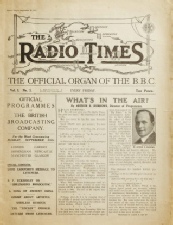© 2014-

State Monopolies and International Agreements (1)
State Monopolies
Almost from the outset regulatory controls were imposed by governments of all political shades over the use of airwaves, usually permitting only a state-
A classic example of this type of governmental control was to be found in Britain where Marconi’s invention of wireless telegraphy had been patented in 1896. The following year Marconi’s Wireless Telegraph Company Ltd. was formed and started to commercially exploit this new means of communication, primarily in maritime transmissions using Morse Code. However, by 1904 the British parliament had introduced the Wireless Telegraphy Act prohibiting the establishment of any new wireless telegraph station, except under licence from the Postmaster General.
Severe restrictions were imposed on non-
By 1920 the Post Office, under pressure from the military authorities who had enjoyed exclusive rights during the War, prevented any further commercial development of wireless telegraphy until a system of public b roadcasting and receiving licences had been introduced. These came in 1921 when 4,000 private individuals and 150 operators were officially licensed to receive or transmit radio broadcasts. Marconi was one of the 150 operators licensed by the Post Office and on 14th February 1922 his station -
roadcasting and receiving licences had been introduced. These came in 1921 when 4,000 private individuals and 150 operators were officially licensed to receive or transmit radio broadcasts. Marconi was one of the 150 operators licensed by the Post Office and on 14th February 1922 his station -
The success of experimental broadcasts made by the Marconi Company led, in October 1922, to the formation by a number of radio manufacturers of the British Broadcasting Company Ltd. (BBC). On 18th January 1923 the BBC was licensed by the Postmaster General as the sole body authorised to ‘‘establish eight radio telegraphy stations and make transmis sions from them of broadcast matter for general reception.’’ The BBC, which obtained its income from half of the 10/-
sions from them of broadcast matter for general reception.’’ The BBC, which obtained its income from half of the 10/-
In addition to so und broadcasting the new Corporation took part in the early development of television, and as early as 1929 started experimental transmissions in that medium. In 1935 the Corporation was granted an additional licence by the Postmaster General to provide a public television service, which was introduced the following year. The BBC maintained its monopoly position in television for another 20 years, but it was to be a lot longer before it relinquished that status in radio broadcasting.
und broadcasting the new Corporation took part in the early development of television, and as early as 1929 started experimental transmissions in that medium. In 1935 the Corporation was granted an additional licence by the Postmaster General to provide a public television service, which was introduced the following year. The BBC maintained its monopoly position in television for another 20 years, but it was to be a lot longer before it relinquished that status in radio broadcasting.
This is one example of state control over the broadcasting systems but the situation was not unique to Britain and similar government licensing controls and restrictions were introduced by many other countries throughout the world.
by many other countries throughout the world.
State Monopolies and international Agreements (2)
The Marconi broadcasting station, 2MT situated in an ex-
The original logo of the British Broadcasting Corporation

2MT test transmissions from Writtle, Peter Eckersley
©BBC

State Monopolies and International Agreements
Nora Scott broadcasting on 2MT, May 1922
First edition of the BBC’s programme listing magazine, Radio Times 28th September 1923
Click image to enlarge




Ground
Floor
Back to




State Monopolies and International Agreements









Back to Gallery index

FIRST OFFSHORE BROADCASTS
Guglie lmo Giovanni Marconi used what might loosely be considered the first offshore radio station during his early experimental broadcasts.
lmo Giovanni Marconi used what might loosely be considered the first offshore radio station during his early experimental broadcasts.
The yacht Elettra was purchased by Marconi in 1919 and fitted out with what was then the latest radio equipment, or wireless apparatus, forming a unique floating lab oratory.
oratory.
The Elettra was used by Marconi to investigate the possible use and application of radio transmissions as a navigational aid.
The vessel also became involved in a broadcast of gramophone records to a meeting of the Imperial Press Union in Canada in July 1920 along with other Marconi stations in Chelmsford (Essex), Poldhu (Cornwall) and St. Johns (Newfoundland).